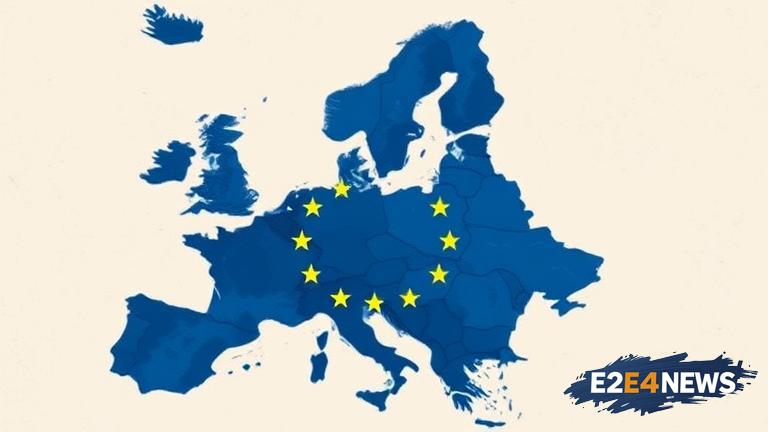The European Union has reaffirmed its commitment to enforcing stringent digital regulations, undeterred by warnings from former US President Donald Trump. This stance underscores the EU’s determination to create a more transparent and accountable digital environment. The digital rules, aimed at promoting fairness and competition, have been a subject of contention between the EU and the US. Trump’s warning suggests that the US may retaliate if the EU proceeds with its plans, potentially straining transatlantic relations. However, the EU remains resolute, citing the need to protect its citizens and businesses from the unchecked power of big tech companies. The EU’s digital rules are designed to prevent the misuse of market power, ensure data privacy, and promote innovation. These regulations have far-reaching implications for tech giants, which will be required to comply with stricter guidelines. The EU’s stance has been welcomed by consumer advocacy groups, who argue that the regulations will help to level the playing field and promote healthy competition. On the other hand, some industry experts have expressed concerns that the regulations may stifle innovation and hinder the growth of startups. The EU has emphasized that its digital rules are not intended to target specific companies, but rather to create a fair and transparent digital landscape. The regulations will apply to all companies operating in the EU, regardless of their country of origin. The EU’s commitment to digital regulations is part of a broader effort to promote digital sovereignty and reduce its dependence on foreign tech companies. This move is seen as a significant step towards creating a more regulated digital environment, where companies are held accountable for their actions. The EU’s digital rules have been in the making for several years, with policymakers engaging in extensive consultations with industry stakeholders and consumer groups. The final regulations are expected to be implemented in the coming months, with companies given a transition period to comply. The EU’s stance on digital regulations has been influenced by several high-profile cases, including the Cambridge Analytica scandal and the Google antitrust lawsuit. These cases have highlighted the need for stricter regulations and greater oversight of big tech companies. The EU’s digital rules are also seen as a model for other countries, which are grappling with similar challenges in regulating the digital landscape. As the EU moves forward with its digital regulations, it is likely to face continued pressure from the US and other countries. However, the EU remains committed to its vision of a regulated digital environment, where companies are held accountable and citizens are protected. The implementation of the EU’s digital rules will be closely watched by industry stakeholders, consumer groups, and policymakers around the world. The outcome will have significant implications for the future of the digital landscape and the role of big tech companies in shaping it. The EU’s stance on digital regulations is a testament to its commitment to promoting a fair and transparent digital environment, where companies are held accountable and citizens are protected. The EU’s digital rules are a significant step towards creating a more regulated digital landscape, where innovation and competition can thrive.
